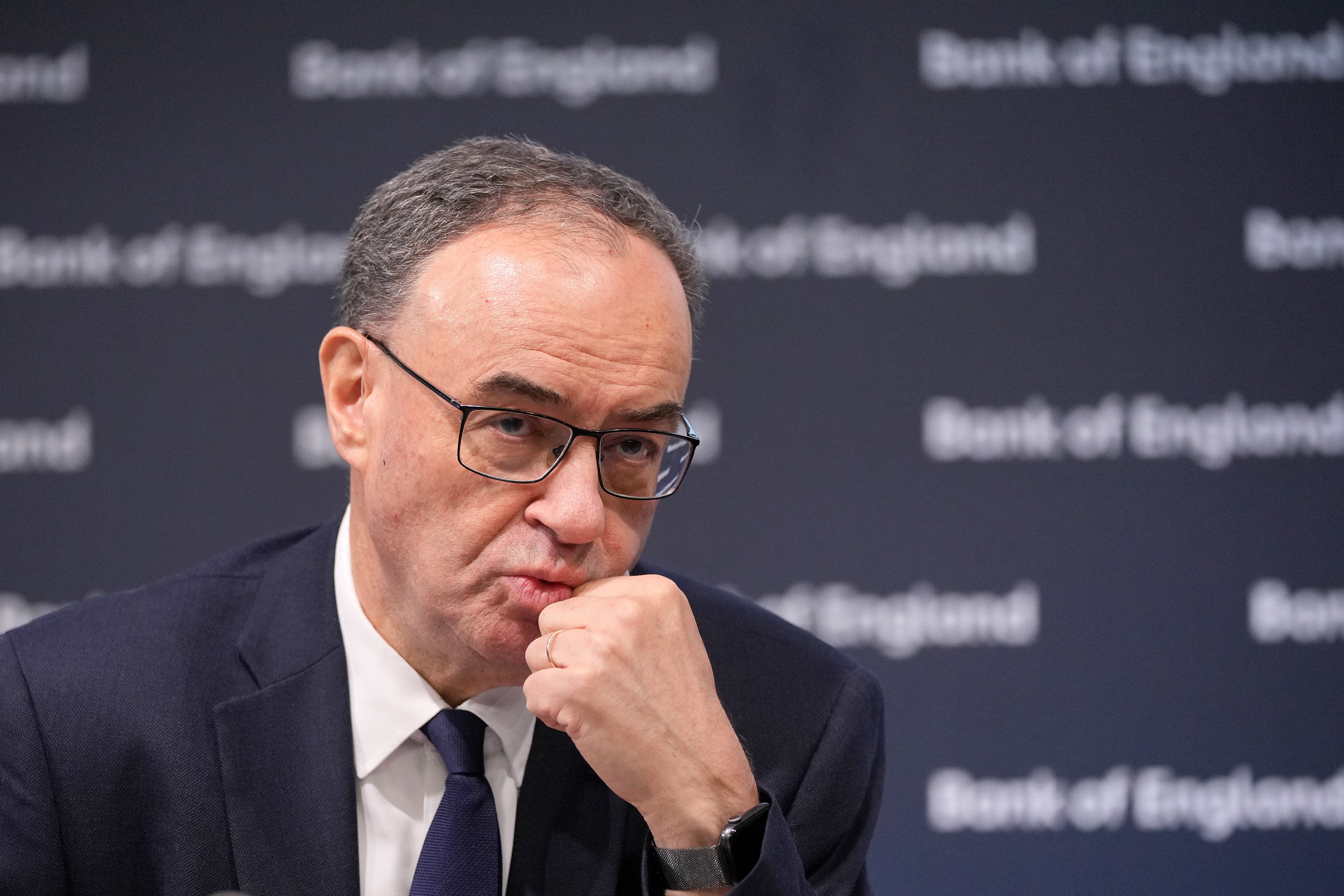What we need from Andrew Bailey’s Bank of the bleedin’ obvious
In Washington, the Bank of England’s governor Andrew Bailey warned of the impact of tariffs on the UK’s ‘open economy’ – the markets have taken the hint that the Bank will act to protect the UK’s struggling economy despite an expected rise in inflation, writes James Moore


The governor of the Bank of England saying we should “take very seriously” the global effects of Donald Trump’s trade war might look like a statement of the bleedin’ obvious – but make no mistake, it matters.
Central bankers choose their words with great caution precisely because they are highly market-sensitive. A statement like that from someone like Andrew Bailey can, and will, be read as a clear signal not only that rates are coming down but that the Bank could be prepared to cut further and cut faster in response to the Trump-induced trade chaos.
Speaking in Washington, Bailey also said: “The UK is a very open economy. It’s not just the relationship between the US and the UK – it’s the relationship between the US and the rest of the world.”
In other words, even if the government does secure a trade deal with the US to bring down the 10 per cent tariffs most UK exports now face (and I have my doubts about that), there will still be an ongoing negative impact. A particularly unpleasant one for a “very open economy” like the UK’s, which is highly sensitive to shifts in global trading conditions – just look at the impact of Brexit.
“Trade does support growth,” Bailey said. “Fragmenting the global economy would be bad for growth.” No kidding. The money markets thought that a quarter-point cut was all but nailed on before this, with more to follow at future meetings of the rate-setting Monetary Policy Committee (MPC). This notwithstanding the expectations of a brief spike in inflation driven by domestic energy prices and the other price hikes that have combined to make April a truly miserable month for consumers.

But I think this raises the chance of a larger, immediate cut to protect the UK economy as well as a further downgrade to the Bank’s growth estimate. The latter matters because the “Old Lady of Threadneedle Street” is a consequential forecaster. Its view of the economy informs interest rate policy and is closely watched.
The Bank of England’s forecast has already been halved from 1.5 per cent to 0.75 per cent. It wouldn’t be a surprise to see a further reduction, perhaps to 0.5 per cent.
Needless to say, a similar downward move by the Office for Budgetary Responsibility (OBR), which has also cut its forecast, but from 2 per cent to 1 per cent, would spell trouble for chancellor Rachel Reeves.
The OBR’s growth forecast informs its view of how much headroom it believes Reeves has over her fiscal rules. A further cut would demand a fiscal tightening – either via tax rises or spending cuts – and probably both. That would feel like a shotgun blast to the kneecap of UK plc when it is already limping.
What little confidence there is to find is rapidly evaporating. The British Retail Consortium reported that its monitor of the consumer’s confidence in the state of the economy had slumped to a record low of -48 in April, from -35 in March. Respondents’ view of their personal financial situations also dropped six points in April to -16.
Against this backdrop, monetary policy needs to loosen. The MPC simply has to act. The silver lining is that the markets think it will, and this is already delivering cheaper mortgage rates on two-year deals in particular.
Nick Mendes, mortgage technical manager at broker John Charcol, said the best offers have dipped below the price of longer-term five-year fixes. “It has become cheaper for lenders to fund shorter-term deals, and they are now passing that on to borrowers,” he said. “This shift reflects expectations that interest rates might start coming down over the next couple of years. The global tariffs situation, among other economic signals, has accelerated this trend, suggesting lenders believe rates may ease sooner rather than later.”
I remain of the view that there is a decent chance of a half-point cut at the MPC’s next meeting early in May to help an economy showing clear signs of trouble.
In February, Catherine Mann, the MPC’s leading interest rate hawk, sprang quite the surprise by voting for a cut of this magnitude to “cut through the noise” of tariff threats and rising inflation.
With the tariffs now here, it would be a fine time to repeat that. It would be widely cheered, providing business borrowers in particular some blessed relief until the autumn, when Reeves, backed into a corner by a succession of bad numbers, will also have to respond.
Join our commenting forum
Join thought-provoking conversations, follow other Independent readers and see their replies
Comments
Bookmark popover
Removed from bookmarks